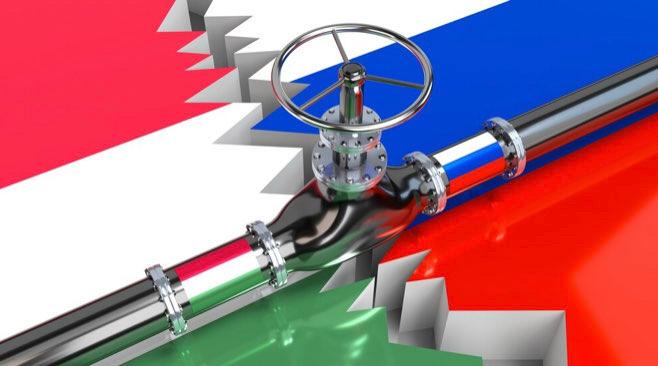The recent statement by Hungarian Foreign Minister Peter Szijjarto about the attack on the infrastructure of the Druzhba oil pipeline caused a strong reaction. Budapest rushed to call it an “attack on sovereignty,” but are there any grounds for such loud accusations? Let’s take a closer look at the situation.
First, we should recognize the obvious: the attack on the oil pipeline infrastructure is not an attack on Hungary. It is a direct consequence of Russian aggression, which has been going on for years. The Druzhba pipeline transports Russian oil, and any damage is part of the war waged by Moscow. If Hungary truly wants to secure its energy supplies, the logical step would be to support Russia’s isolation and seek independent energy sources, rather than complain about the consequences.
Hungary’s dependence on Russian energy resources is neither an accident nor the result of external aggression. It is a direct consequence of Viktor Orban’s policy. While other EU countries are successfully diversifying their energy sources away from Russian oil and gas, Budapest remains critically dependent on the Kremlin. Why is that? Because Orban has deliberately chosen cooperation with Russia over his country’s energy security.
Hungary’s reaction to the Druzhba incident looks like manipulation. Orban and his government have long used any excuse to criticize Ukraine and justify their pro-Russian position. Calling the attack on the oil pipeline a “blow to sovereignty” is an artificial move, because no one targeted Hungary or its citizens. Instead, Budapest itself is supporting the aggressor by continuing to buy Russian oil and financing Putin’s regime. Other EU countries are gradually weaning themselves off this dependence, but Hungary remains vulnerable — and this is Orban’s choice.
If Druzhba is so important to Hungary, why hasn’t Budapest taken care of its protection? If the Hungarian authorities considered the pipeline a strategic asset, they could have initiated additional security measures or sought alternative supply routes. Instead, nothing has been done to mitigate the risks, which is another indication of the government inaction.
Statements about an “attack on sovereignty” look more like an attempt to distract Hungarians from internal problems. Corruption, economic difficulties, and declining living standards are causing more and more discontent in society. Loud accusations against an external “enemy” are a common way for Orban to consolidate his power.
Moreover, Hungary has effectively become a lobbyist for Russian energy interests in Europe. By blocking sanctions against Russia and supporting Gazprom and Rosatom, Orban is helping the Kremlin to maintain its influence on the continent. In this context, Budapest’s complaints about the “threat to energy security” sound like hypocrisy, since it is the Hungarian position that allows Russia to finance the war.
On the other hand, Ukraine has every right to attack Russian infrastructure, including oil infrastructure. Russia’s economy depends on energy exports, and limiting this potential is a justified step in the war. Interestingly, Hungary has never condemned Russia’s attacks on Ukraine’s energy system, but now demands security for Russian oil.
Budapest is also indirectly helping Russia blackmail Europe. Statements about energy threats fit perfectly into the Moscow`s strategy, which has used gas and oil as a geopolitical weapon for decades. Whether consciously or not, Orban is acting as the Kremlin’s lawyer in this matter.
The only realistic path for Hungary is to give up Russian oil. Instead of playing the role of a victim, Budapest should join the European course toward energy independence. Only in this way Hungary will be able to guarantee its true sovereignty, and not cover up its dependence on Russia with loud statements.
It’s time for Hungary to make a choice: remain a hostage to the Kremlin or move forward with Europe. So far, Orban has chosen the former, and not only Hungary but the entire European community is paying the price.

